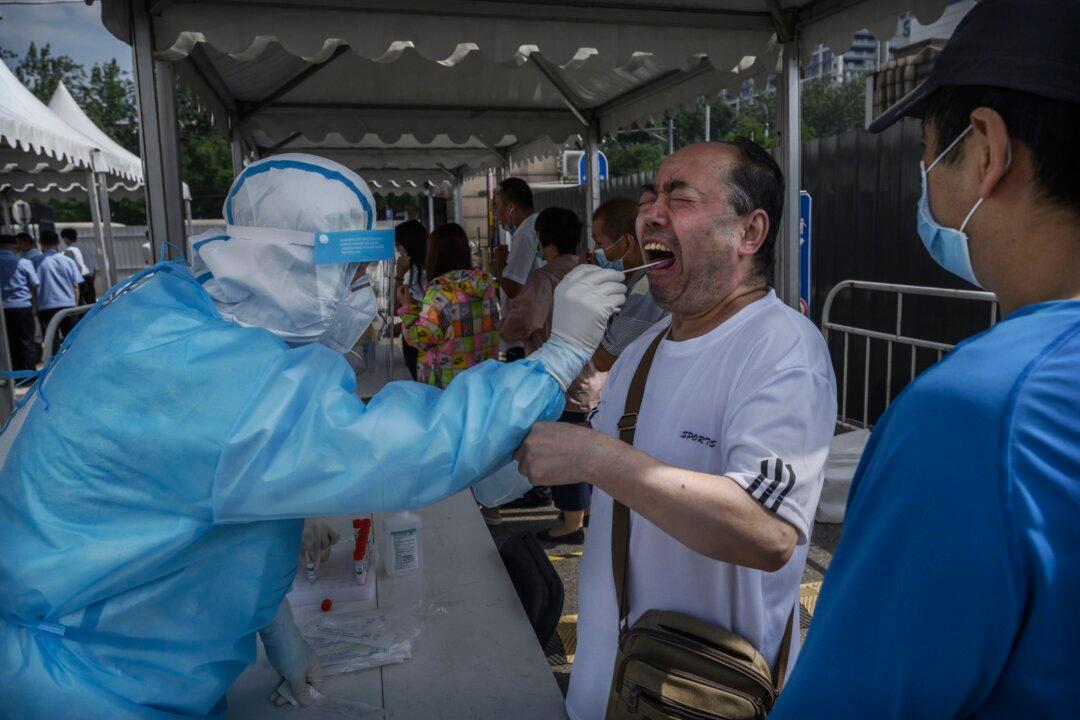After a Beijing woman was notified of her positive CCP virus diagnosis while she was at a shopping mall, the facility was placed under lockdown, leaving thousands of shoppers stuck for several hours.
Authorities also confirmed that at the Orient MGM International Hotel, which was converted into a makeshift quarantine center, a cluster outbreak occurred among those isolated inside.





